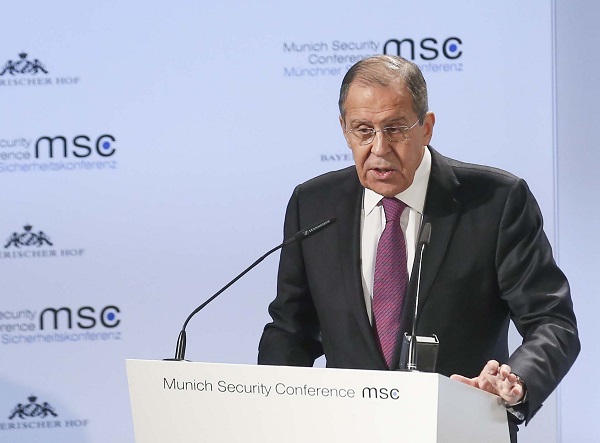Havana, Russian Foreign Minister Sergei Lavrov closed ranks with his Cuban counterpart, Bruno Rodriguez in Havana, and promised to strengthen Moscow’s alliance with the Caribbean island and with Venezuela in the face of what he called US “impositions” and “neocolonialist methods.”
“We will continue supporting the Cuban people,” Lavrov reiterated on at least two occasions during his visit to the communist island to bolster bilateral political dialogue, discuss co-operation between the two nations and evaluate the progress made on agreements signed last November between the presidents of the two countries, Vladimir Putin and Miguel Diaz-Canel.
The top Russian diplomat confirmed on Wednesday that Prime Minister Dmitri Medvedev, Putin’s right-hand man, will visit Havana in October for the 500th anniversary of the city’s founding, to be celebrated in November, Efe news reported.
Regarding relations with Cuba, the Russian emphasized the “broad dialogue in trade and investments” between the two nations, as reflected in assorted projects such as updating the island’s railroad network with Russian investment at a cost of some $1.123 billion.
He also discussed Russia’s strategy for “developing the links with Latin America and the Caribbean” and rejected the “imposition of values” and the “appropriation of financial resources” along with “persistant neocolonialist methods” that he attributed to US President Donald Trump’s strategy toward countries in the region.
Lavrov also issued a call to European countries and other US allies, urging them to halt Trump’s aggressive policies and convince the US leader to adhere to the spirit of multilateral understanding kindled in the mid-20th century with the creation of the United Nations and the signing of the Bretton Woods accords.
As expected, Lavrov also condemned Washington’s long-standing economic and trade embargo on Cuba, a measure that was recently made even stricter by Trump with the imposition of new sanctions on Havana.
Regarding Venezuela, Lavrov reiterated the Russian position of seeking a solution to that country’s political crisis via “peaceful means, such as the use of diplomacy … without the injection of third countries or the use of force.”
Rodriguez, meanwhile, thanked Moscow for its support of the Cuban government and Venezuela’s Nicolas Maduro regime in the face of US sanctions and said that Russia was exercising “leadership in the defense and preservation of peace” in the world.
The Wednesday meeting in Havana is the second this year between Lavrov and Rodriguez, who in May in Moscow expressed their unity in the face of “coercive unilateral measures” by the US against the two countries.
Earlier on Wednesday, Lavrov and former Cuban President Raul Castro inaugurated the emblematic Statue of the Republic at the Cuban capitol building, the world’s third-largest indoor statue, which was recently repaired and covered in gold leaf with Russian financing and technical help.
Castro presided at the ribbon-cutting ceremony in the capitol vestibule for the 18-meter-high (59 feet) statue, which more than 20 Russian experts restored and coated with a thin layer of 24-carat gold in preparation for the city’s 500th anniversary ceremony.
“Cuba is a faithful friend and strategic ally of Russia. Our relationship has stood the test of time and today continues to develop … This joint project is an example of that cooperation and a testament to the friendship that unites us,” Castro said.
After his visit to Havana, Lavrov will continue on Thursday to Brazil, where on Friday he will participate in the meeting of foreign ministers from the BRICS nations – namely Brazil, Russia, India, China and South Africa – and will meet with his Brazilian counterpart, Ernesto Araujo.










